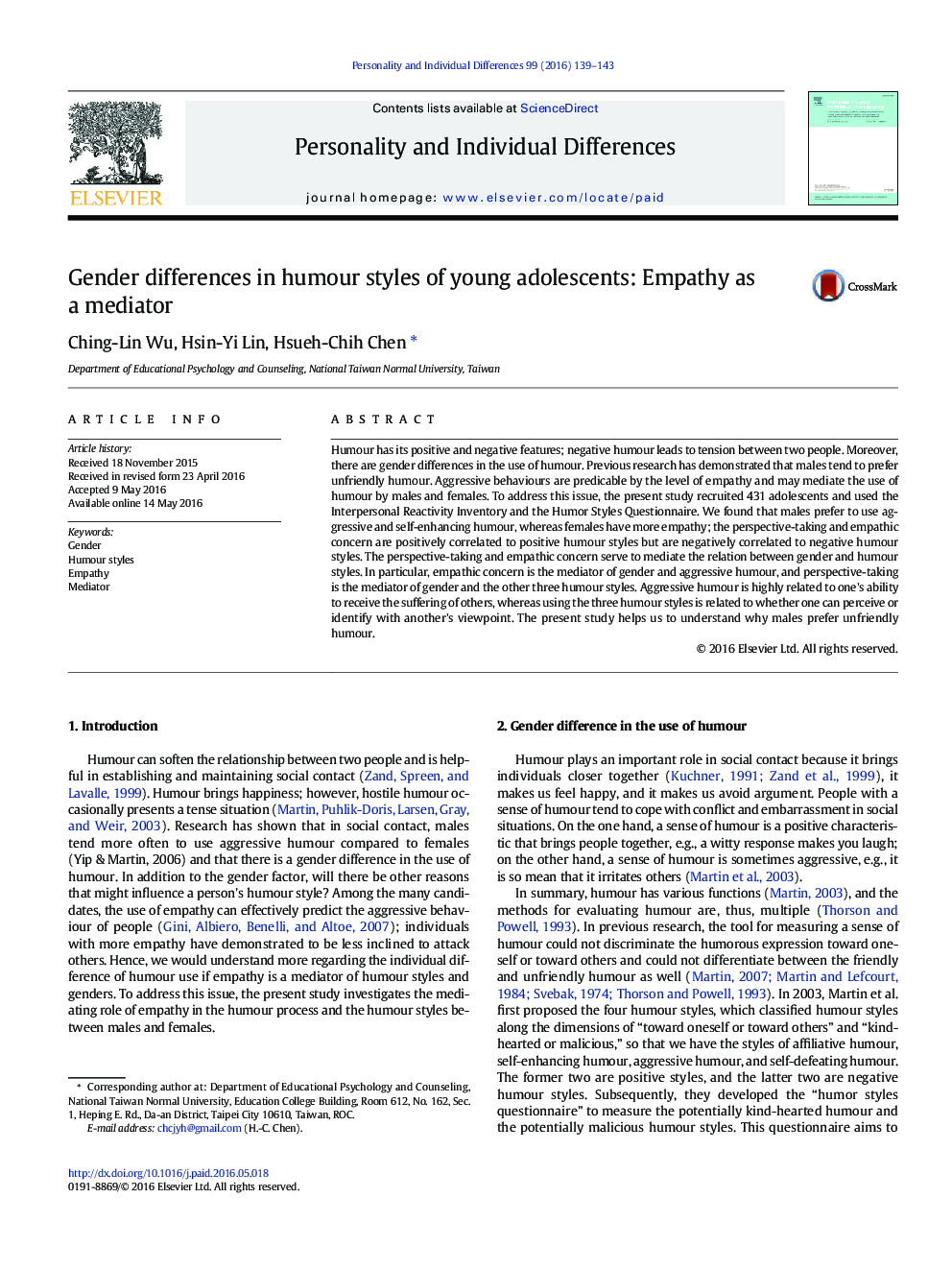| کد مقاله | کد نشریه | سال انتشار | مقاله انگلیسی | نسخه تمام متن |
|---|---|---|---|---|
| 889711 | 1472019 | 2016 | 5 صفحه PDF | دانلود رایگان |
• Empathic concern is the mediator of gender and aggressive humour.
• Perspective-taking is the suppressor of gender and positive humour.
• Males use more aggressive and self-enhancing humour; females have more empathy.
• Aggressive humour is related to one's ability to receive the suffering of others.
• Other three humour styles related with whether one can perceive other's viewpoint.
Humour has its positive and negative features; negative humour leads to tension between two people. Moreover, there are gender differences in the use of humour. Previous research has demonstrated that males tend to prefer unfriendly humour. Aggressive behaviours are predicable by the level of empathy and may mediate the use of humour by males and females. To address this issue, the present study recruited 431 adolescents and used the Interpersonal Reactivity Inventory and the Humor Styles Questionnaire. We found that males prefer to use aggressive and self-enhancing humour, whereas females have more empathy; the perspective-taking and empathic concern are positively correlated to positive humour styles but are negatively correlated to negative humour styles. The perspective-taking and empathic concern serve to mediate the relation between gender and humour styles. In particular, empathic concern is the mediator of gender and aggressive humour, and perspective-taking is the mediator of gender and the other three humour styles. Aggressive humour is highly related to one's ability to receive the suffering of others, whereas using the three humour styles is related to whether one can perceive or identify with another's viewpoint. The present study helps us to understand why males prefer unfriendly humour.
Journal: Personality and Individual Differences - Volume 99, September 2016, Pages 139–143
